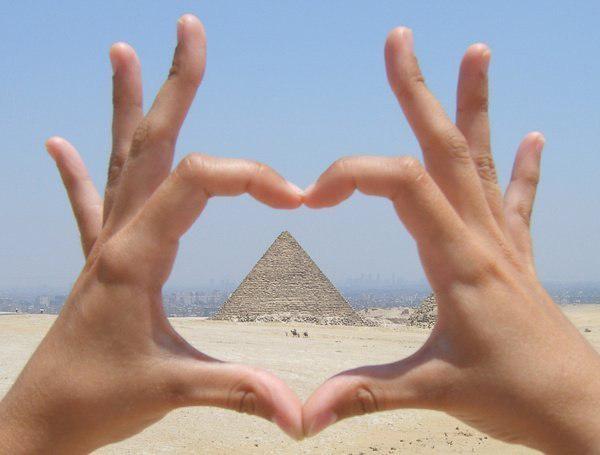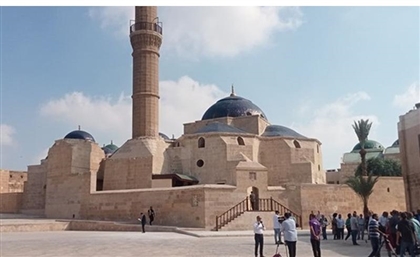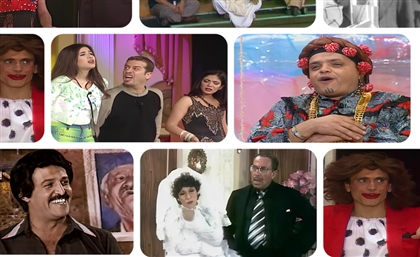Dear Egypt: I Love You, But I Must Question My Love
Mona Shadia looks at Egypt's recent turmoil, culminating in the sentencing of the Al Jazeera journalists, and wonders - where is the love?

I have quite the complicated relationship with Egypt. The kind of complications a liberated daughter would have with an old school mother or father.
On one hand, my very essence is Egyptian, my distinct hair color, my hazel eyes, my skin, my laugh and my blood.
Egypt shapes me in ways I could never truly describe.
The pride I have for being Egyptian runs deep, deeper than the Nile, timeless as its history, audacious as its pyramids and resilient like the ages.
I obsess over her architectures, I long for her chaotic sounds, dream of my vacations in her arms and my plans to explore her piece-by-piece are awe-inspiring. I didn't always feel this way, I get deeper in love with Egypt as I age. Living away from Egypt only intensifies my feelings for her. That could have something to do with it, but there’s no questioning my love for Egypt.
And yet, there are those times when I do examine my love and wonder if Egypt loves me the way I do.
Among the most recent was the re-sentencing of the three Al-Jazeera journalists over unproven, even impossible-to-prove, allegations they were supporting terrorists. That was the re-sentencing of the three journalists after having already sentenced them and imprisoned them without charges.
How exactly does a journalist aide a terrorist organisation? How do you pose as a journalist when you’re already a journalist? What were the false news they allegedly distributed?
I wanted to be a journalist since I was a kid living in Cairo. It was the genocide in Bosnia and the disease and unrest in Africa that led me to pick journalism. I wanted to shed light in the dark and tell the stories of the people.
But I’ve known all along that I could never have been a free journalist in Egypt, that I’d always have to be cautious and look over my shoulders. Like the people themselves, journalists aren’t free and the minute they question the government they’re silenced, imprisoned and accused of crimes that make Egypt look like joke around the world.
I ended up working as a print journalist outside of Egypt for many years. Although I could never place myself on the same scale as those who risk their lives everyday in war torn nations to tell the stories of the people, I know one thing for sure: governments – all governments – punish and silence journalists when they attempt to expose all the illegalities, injustices and crimes committed by those governments.
If there’s something else I know for sure is that journalists care deeply about what they do. They risk their lives, are often underpaid, underappreciated and overworked, but yet they still do their job everyday with dignity and conviction. And they make a difference, they give a voice to the voiceless and lead the people toward a change.
I am not defending a publication nor have I ever felt that any publication is more important than the work itself. It is journalists and journalism I am defending. And the truth is if Mohamed Fahmy, Baher Mohamed and Peter Greste were really committing crimes or spreading false news, I don’t think anyone would be defending them. So why not show credible evidence and seek justice the right way?
According to the Committee to Protect Journalists, a nonprofit organisation that promotes press freedom around the world, 221 journalists were jailed in 2014. Many of them were in countries like China, Iran, Ethiopia, Egypt, of course, and even ones that claim to be democracies like Israel and Turkey.
When a country other than yours commits injustices, you tend to think it’s due to its harsh nature or people. But what do you do when your own does the same? It’s hard to accept. It’s hard to stand by and say nothing. Or at least one should find it unsettling. What is difficult for me when I watch as this kind of news comes out of Egypt is reconciling between my love for Egypt and the pedestal on which I place her and the injustices happening in her name everyday, not just against journalists, but so many of her own people.
But when I question my love for Egypt, I remind myself that the government isn’t Egypt. Egypt and its people, regardless of who governs her – the old, the new or the in between – are greater, grander, just, nurturing and loving.
And I question it because that is love, after all. Loving someone or something means challenging them to be better and to living up to their greatness.
I do live on the hope that one day, near or far, Egypt will stand as a symbol of justice, dignity and respect. It will not be easy or perfect, but it will be the right thing. And it will be the day when Egypt reaches her full potential, abundant greatness and rightful place in history.
- Previous Article Span Marketing; Your One Stop Hub for Interior Design
- Next Article The BRGR Truck Hits Gouna for Eid
























